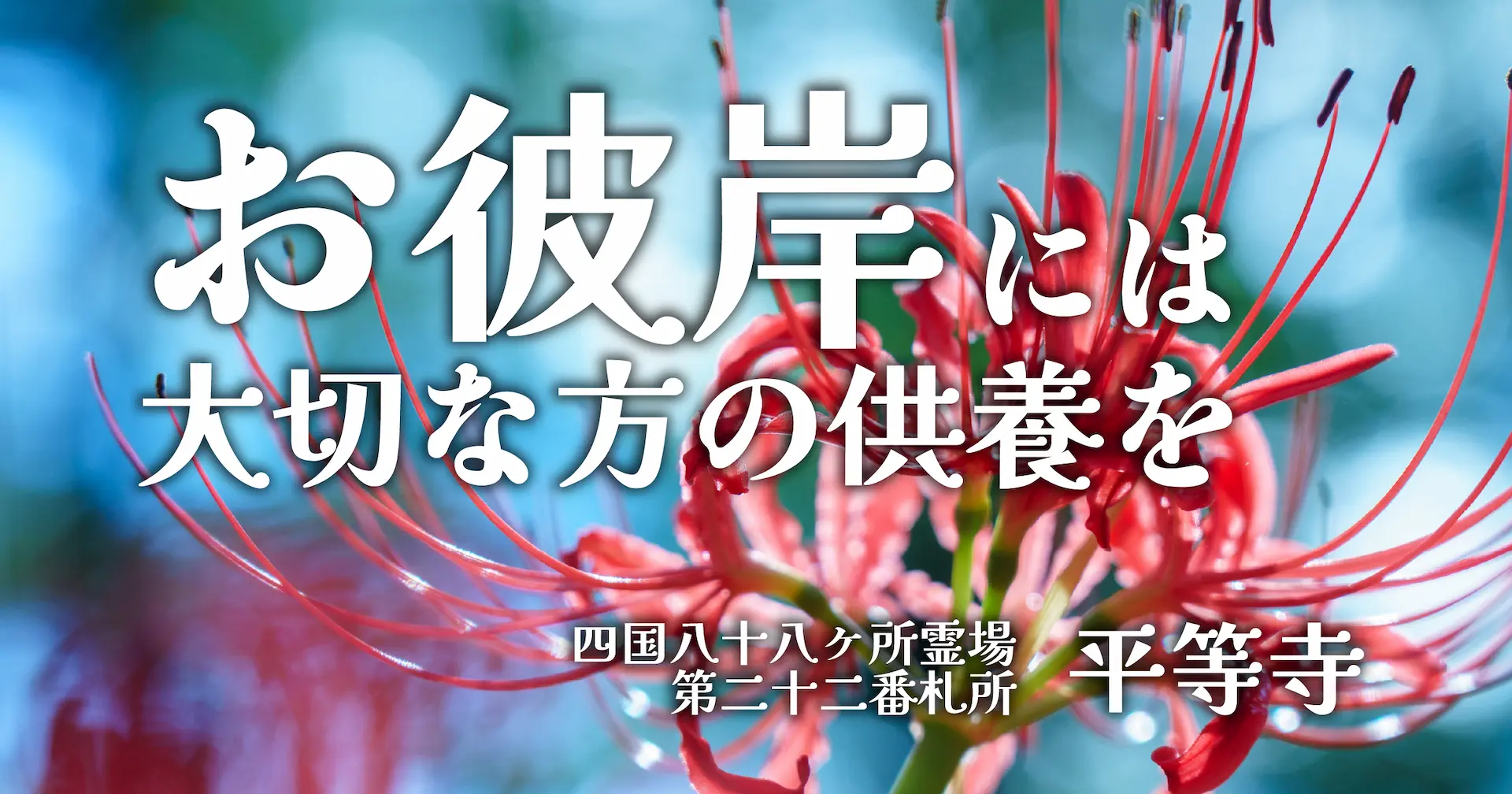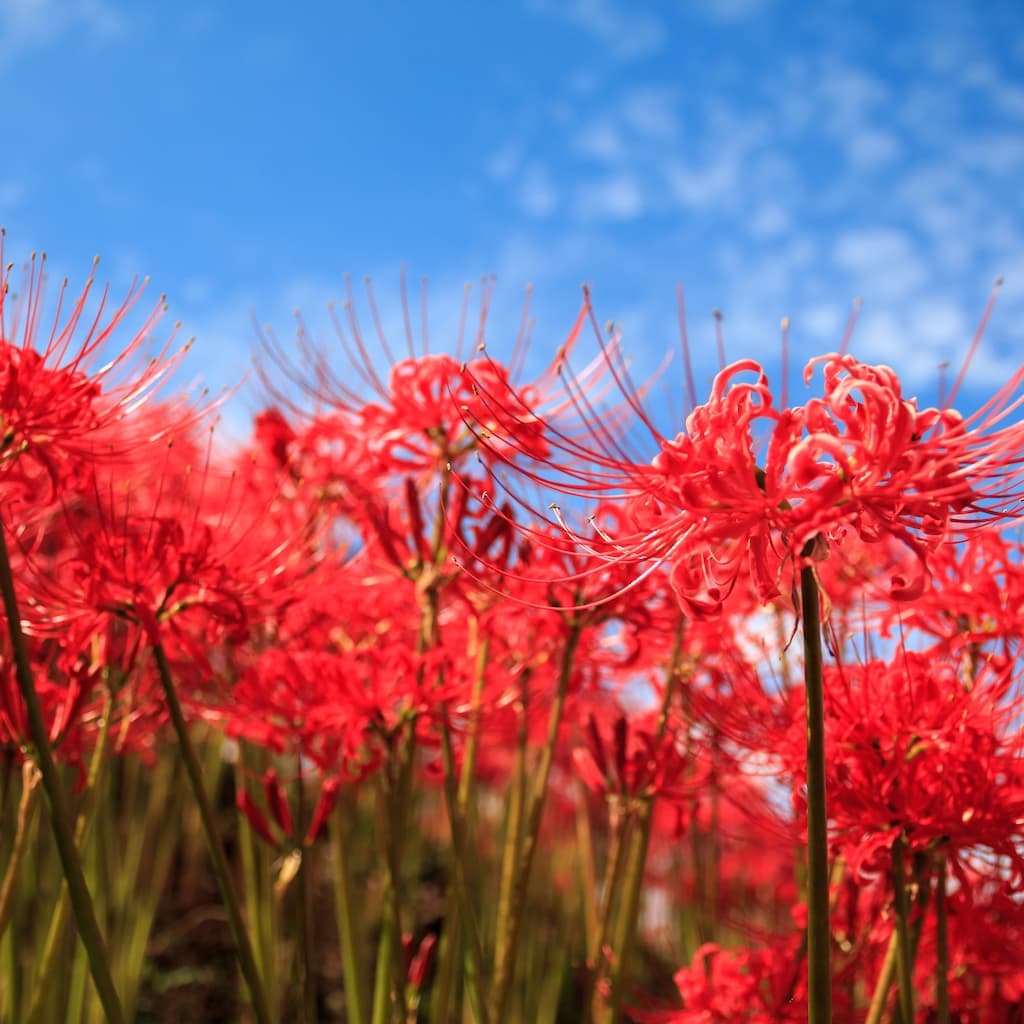「彼岸へ」
六波羅蜜に学び、心を澄ます本来のお彼岸を。

お彼岸とは?
由来とオンライン供養
「お彼岸」とは、私たちの世界(此岸)から仏さまの世界(彼岸)へと近づくための特別な期間です。 毎年二度、春分の日・秋分の日を中日として、その前後一週間を「お彼岸」と呼びます。
この期間に供養を行うことは、六波羅蜜の教えに基づく修行を実践することであり、自らの仏性を省みる大切な機縁です。
平等寺では、遠方の方にもご参加いただけるよう、オンラインでのご供養も承っております。
今年のお彼岸
春と秋、それぞれの彼岸期間を確認しておきましょう(令和7年=2025年)。
春彼岸
- 始まり:2025年3月17日(月)
- 終わり:2025年3月23日(日)
秋彼岸
- 始まり:2025年9月20日(土)
- 終わり:2025年9月26日(金)

彼岸花(ヒガンバナ):秋の彼岸の頃に咲く花。かつては田の畦に植え、動物よけとしても用いられました。墓地にも多く見られます。
お彼岸では何をするの?
お彼岸は、日本の仏教徒において先祖供養が推奨される期間です。お墓参り・仏壇のお掃除・お供え・読経などを行います。 お盆が「お迎えとおもてなし」の時期なのに対し、お彼岸は「こちらから仏さまの世界に近づく」実践の時期。六波羅蜜に沿って心を整え、供養を進めましょう。
彼岸と波羅蜜
彼岸(ひがん)はサンスクリット語 Pāramitā の意訳で「向こう岸=完成の境地」。 音写が「波羅蜜(はらみつ)」です。此岸(こちら側)から彼岸へ渡る“乗り物”として、大乗仏教では六波羅蜜(布施・持戒・忍辱・精進・禅定・般若)を重視します。

六波羅蜜とは
布施・持戒・忍辱・精進・禅定・般若の6つの実践。先祖供養の所作に象徴が込められています。
六波羅蜜と心の旅路
布施で慈しみを、持戒で正しさを、忍辱でゆるがぬ強さを、精進で継続の喜びを、禅定で静けさを、そして般若で光を得ます。お彼岸の実践は、日常を豊かにする心の道のりです。
オンラインで供養する
平等寺ではオンラインでお彼岸の供養を受け付けています。法会でご先祖さまや大切な方のお名前・ご戒名を読み上げてご供養します。
お彼岸 供養法会
- 春彼岸: 期間中毎日
- 秋彼岸: 期間中毎日
- 配信先: YouTube / ニコニコ / Twitch
供養の仕方・供養の流れ
供養の仕方
お彼岸の期間中、毎日少しでも時間を取り、布施(お供え)・掃除(持戒)・花(忍辱)・食(精進)・線香(禅定)・灯明(般若)を意識して実践しましょう。
供養の流れ
- 申し込む: オンラインでお申し込みとお布施。専用ページから手続きいただけます。
- 供養法会: 毎日 20:00–22:00。内容に応じて読み上げ供養等を行います。ライブ配信画面に祈願番号が表示され、進行が分かります。
- オンライン参拝: ご都合の良い日程でリモート参拝が可能です。
お彼岸Q&A
お彼岸について、よくある疑問にお答えします。
お彼岸は、六波羅蜜の実践を通して心を磨き、仏さまに近づく時間。平等寺オンラインが、その静かな歩みに寄り添えますように。